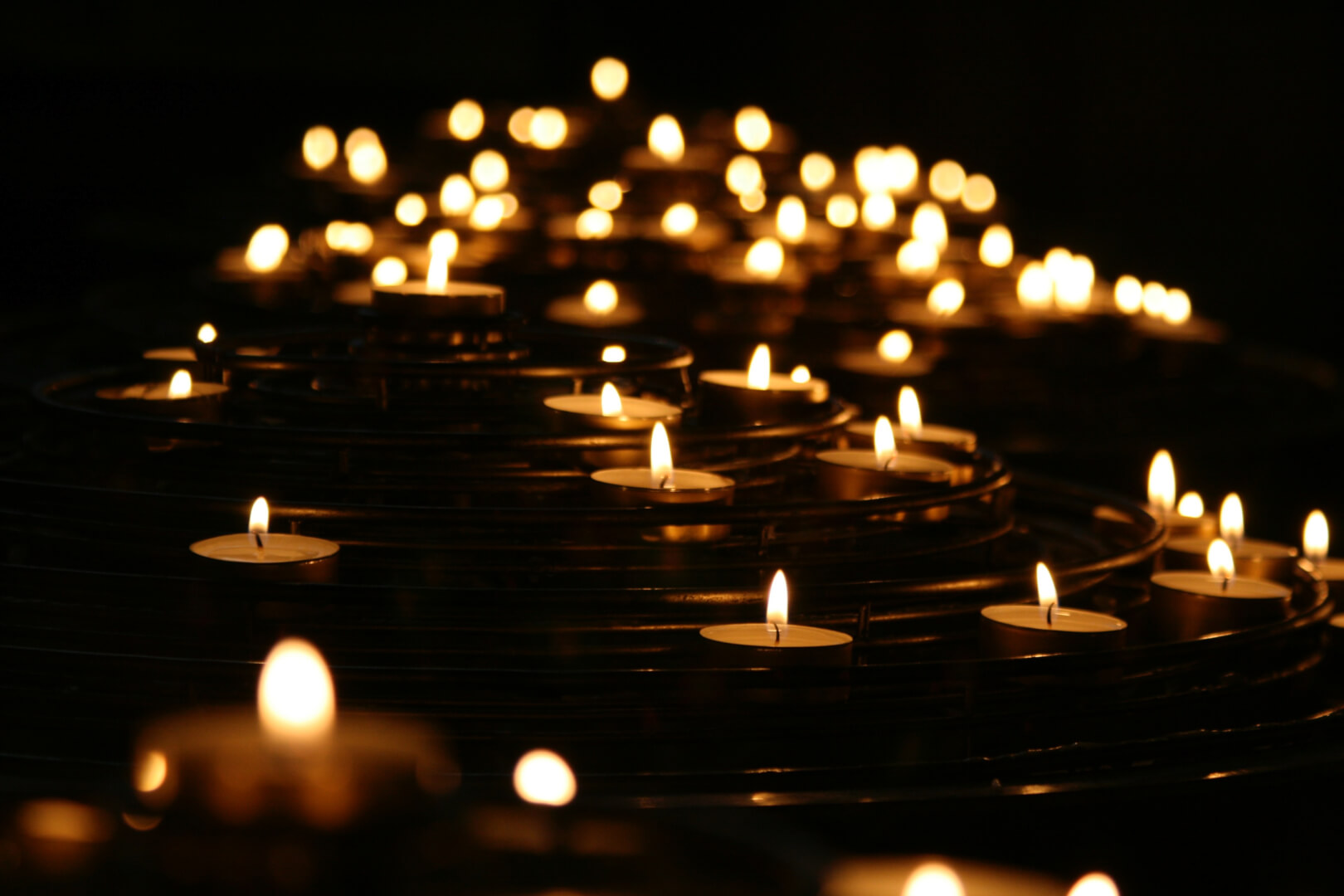Sitting down after the proclamation of the Gospel today were you a bit perplexed? Did you wonder how the Prince of Peace can say He came not to bring peace, but division? Today’s Gospel reading can be confusing and unsettling, but rather than becoming discouraged we can look at it as an invitation to dive more deeply at the words of Jesus and see what He is calling us toward.
Bishop Daniel Mueggenborg, auxiliary bishop of the Archdiocese of Seattle, stopped by Morning Air® this week to explain the meaning of today’s Gospel, and how we can apply it to our lives today.
Bishop Mueggenborg explained that this Gospel passage warns us against a prosperity Gospel mindset, saying, “Oftentimes we expect that becoming a person of faith will bring peace to our lives, and harmony. And sometimes it’s very disheartening and even questioning when a person begins to experience turmoil as a result of their faithful adherence to God’s will. And that’s what Jesus is speaking about in this passage.”
Drawing on the continuity of the recent Gospel readings, he also pointed out. “Last week Jesus told us how important it is to not only know the Master’s will, but be willing to do the Master’s will. Jesus is telling us that when we are radically committed to doing God’s will and following the Lord as a disciple that we need to be prepared for some of the resistance, and for the surprising negative experiences we can have as a result of that.”
Living as a Catholic can often be extremely counter-cultural. And so we read Jesus’ words about setting the earth on fire and can assume that He is talking about destroying the things of the world. But Bishop Mueggenborg encouraged listeners to recognize that the fire Jesus came to set is for us – and it is not a fire of destruction but of purification.
“Jesus uses an important image to speak abut the dynamic of faith,” he said. “It’s the image of fire. He says, ‘I have come to set the earth on fire, and how I wish it were already ablaze.’ And we might even look at our own lives this week and think about how that experience of faith is like a fire that purifies us of sin, that sanctify us to the Holy Spirit that God can use to help shape our lives.”
“Jesus does not use the image of fire in a negative way only. Certainly it can be perceived like that. But whenever fire is a purifying element in our lives, that’s always a Christ-filled element. And it’s only when we can rest comfortably and confidently in God’s love that we can actually desire for the purification, the purifying fire of God’s mercy, to cleanse us of our sin and from our attachment to sin. And that’s a fire that is not about destruction, but a fire that is about purification. I think that’s a very important distinction.”
In the Gospel, Christ tells of households divided against each other because of Him. And this can be perplexing. If our love of Christ means we are to love our neighbor, how can following the Lord set even family members against each other? Bishop Mueggenborg pointed out that the more Christ-like we become, the more likely people will be to reject us because they reject Christ. He said that we must be prepared for this, and warned against trading the eternal peace of Christ for momentarily keeping the peace in a relationship.
“The closer God calls us to Himself, and the more we respond to that call, the more those around us who aren’t responding to that call are going to be disturbed by it,” said Bishop Mueggenborg. “And so that’s what the Lord wants to prepare us for. ”
“If a person is only living for momentary happiness, that’s where we actually give other people power over us. When we are willing appease them, and to do what they want for the sake of keeping the peace. And if that’s the case, then a person will not be able to be a disciple. Because ultimately, there are other relationships that will determine their decisions rather than their fundamental relationship with Jesus Christ.”
So are there any positive takeaways from today’s Gospel? Bishop Mueggenborg says yes. Although division and strife is likely, we should not despair. Rather, we should always hope and work to bring those around us into relationship with Christ. For it is in Him that we all find lasting peace.
“I think the positive takeaway from this is that the communion that Jesus offers us is the only communion that can ever satisfy us,” Bishop Mueggenborg said. “Not just in this life, but in eternal life. It is the communion that is enduring and it’s the communion we can put our trust in. As Christians, we should all be desiring that communion. Not only for ourselves, but for all others. … If that’s our common aspiration, then we will find peace and harmony, because we will all be focused on Jesus together.”
Listen to the full reflection below:
Morning Air can be heard weekdays from 6:00 – 9:00 a.m. Eastern/3:00 – 6:00 a.m. Pacific on Relevant Radio® and the Relevant Radio App.


